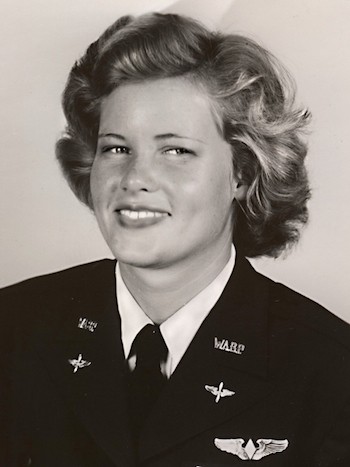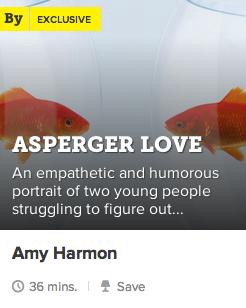You're Old Because You're Sad
“People suffering from depression may be aging faster than other people, according to a new study from the Netherlands.”
Eleven Twelve Thirteen

Eleven twelve thirteen. Eleven twelve thirteen. Eleven twelve thirteen. Eleven twelve thirteen. Eleven twelve thirteen. Eleven twelve thirteen. Eleven twelve thirteen. Eleven twelve thirteen. Eleven twelve thirteen. Eleven twelve thirteen. Eleven twelve thirteen. Eleven twelve thirteen. Eleven twelve thirteen. Eleven twelve thirteen. Eleven twelve thirteen. Eleven twelve thirteen. Eleven twelve thirteen. Eleven twelve thirteen. Eleven twelve thirteen. Eleven twelve thirteen. Eleven twelve thirteen. Eleven twelve thirteen. Eleven twelve thirteen. Eleven twelve thirteen. Eleven twelve thirteen. Eleven twelve thirteen. Eleven twelve thirteen. Eleven twelve thirteen. Eleven twelve thirteen.
Eleven twelve thirteen. Eleven twelve thirteen. Eleven twelve thirteen. Eleven twelve thirteen. Eleven twelve thirteen. Eleven twelve thirteen. Eleven twelve thirteen. Eleven twelve thirteen. Eleven twelve thirteen. Eleven twelve thirteen. Eleven twelve thirteen. Eleven twelve thirteen. Eleven twelve thirteen. Eleven twelve thirteen. Eleven twelve thirteen. Eleven twelve thirteen. Eleven twelve thirteen. Eleven twelve thirteen. Eleven twelve thirteen. Eleven twelve thirteen. Eleven twelve thirteen. Eleven twelve thirteen. Eleven twelve thirteen. Eleven twelve thirteen. Eleven twelve thirteen. Eleven twelve thirteen. Eleven twelve thirteen. Eleven twelve thirteen. Eleven twelve thirteen. Eleven twelve thirteen. Eleven twelve thirteen. Eleven twelve thirteen. Eleven twelve thirteen. Eleven twelve thirteen.
Eleven twelve thirteen. Eleven twelve thirteen. Eleven twelve thirteen. Eleven twelve thirteen. Eleven twelve thirteen. Eleven twelve thirteen. Eleven twelve thirteen. Eleven twelve thirteen. Eleven twelve thirteen. Eleven twelve thirteen. Eleven twelve thirteen. Eleven twelve thirteen. Eleven twelve thirteen. Eleven twelve thirteen. Eleven twelve thirteen. Eleven twelve thirteen. Eleven twelve thirteen. Eleven twelve thirteen. Eleven twelve thirteen.
Eleven twelve thirteen. Eleven twelve thirteen. Eleven twelve thirteen. Eleven twelve thirteen. Eleven twelve thirteen. Eleven twelve thirteen. Eleven twelve thirteen. Eleven twelve thirteen. Eleven twelve thirteen. Eleven twelve thirteen. Eleven twelve thirteen. Eleven twelve thirteen. Eleven twelve thirteen. Eleven twelve thirteen. Eleven twelve thirteen. Eleven twelve thirteen. Eleven twelve thirteen. Eleven twelve thirteen. Eleven twelve thirteen. Eleven twelve thirteen. Eleven twelve thirteen. Eleven twelve thirteen. Eleven twelve thirteen. Eleven twelve thirteen. Eleven twelve thirteen. Eleven twelve thirteen. Eleven twelve thirteen. Eleven twelve thirteen. Eleven twelve thirteen. Eleven twelve thirteen. Eleven twelve thirteen. Eleven twelve thirteen. Eleven twelve thirteen.
Eleven twelve thirteen. Eleven twelve thirteen. Eleven twelve thirteen. Eleven twelve thirteen. Eleven twelve thirteen. Eleven twelve thirteen. Eleven twelve thirteen. Eleven twelve thirteen. Eleven twelve thirteen. Eleven twelve thirteen. Eleven twelve thirteen. Eleven twelve thirteen. Eleven twelve thirteen. Eleven twelve thirteen. Eleven twelve thirteen. Eleven twelve thirteen. Eleven twelve thirteen. Eleven twelve thirteen. Eleven twelve thirteen. Eleven twelve thirteen. Eleven twelve thirteen.
How To Not Bleed So Much From The Nose
If you want to stop nosebleeds, tip your head forward instead of back to help the blood clot. Also, don’t do so much coke.
There Is Nothing You Can Take For Death
“Even though half the U.S. population pops vitamins in the belief they can help people live longer, healthier lives, a very extensive look at the studies that have been done show it may be a waste of time when it comes to preventing the diseases most likely to kill you.”
The Veterans That Nearly Weren't

When Scotty was still small she read that pilots must have very good eyesight and so she began to eat carrots, one each day for the rest of her life. In high school she hung around the airfield out in Glendale. After graduating, she worked at a bank and put her money toward flight school, getting her hours up, readying to be a professional pilot all while knowing this was all but impossible. She’d already lost a college scholarship after she told the interviewing committee about her airborne ambitions.
Her given name was Virginia Bradley, but even in those earliest, most sunburnt and dusty days in Los Angeles in the 1920s, everyone called her Scotty. It was while Scotty was in flight school, while she was out practicing her landings, that the bombs dropped on Pearl Harbor. During the war, it was forbidden for civilians to fly within 200 miles of the coast, so Scotty moved inland, to an airfield in Blythe, California. She kept up her training, worked the control tower, and on weekends taught other women to fly.
It was in Blythe that Scotty started jumping out of planes. The owner of the airfield gave her a deal — pull in crowds with her flying leaps and he’d give her free airtime for her training. Scotty parachuted over and over again. The only piece of advice the pilot shouted back at her before her first jump was to count to ten, very slowly, before opening her chute, so as not to get it caught in the plane’s tail. She was 19.
A year later Scotty joined the Women’s Airforce Service Pilots (WASP), the first military program to train women to fly — even while designating them as civilians. The WASPs’ ferried aircraft across the country, base to base. It was dangerous work. Often they piloted nearly junked planes, beat up old test aircraft with engine troubles, while wearing jumpsuits cut for men. The commanding general of the U.S. Army Air Forces said at the time no one was certain “whether a slip of a girl could fight the controls of a B-17 in heavy weather.”
But they could, and they did. Thirty-eight WASPs died during wartime, many in terrible crashes; none were given military funerals. After the war ended none of the WASPs, living or dead, were given veterans’ status or benefits, let alone any medals or promotions. Incredibly, the files on the WASP program were sealed until 1977, and only opened after the Air Force issued a big splashy press release about how it was going to be the first arm of the military to train women to fly. The WASPs, which everyone had apparently forgotten about, had them beat by decades.
Scotty was a squadron commander in WASP training in Sweetwater, Texas, and after she earned her wings she flew AT-6’s, chunky single-prop advanced training aircraft, out of Arizona. Her job was to take the beat-up old ATs from one base to the next. She was also a test pilot, meaning that she flew patched-up planes to make sure they were safe enough for the cadets and instructors. Is it even worth pointing out that the cadets and instructors were all men? It is.
Many years later, after her service to the country had gone largely ignored, Scotty reflected on her experience: “To tell you the truth, and every WASP will agree with me on this: if I had had the money at that time, I would have gladly paid them for that wonderful training and the opportunity to fly those wonderful airplanes.”
After the war, she kept flying. On the day Idlewild Airport became JFK, Scotty flew in the opening ceremonies. She was seven months pregnant with her first child.
In 2007, Scotty and four of her fellow WASPs were inducted into the Delaware Aviation Hall of Fame. I took the train down from New York but failed to bring clothes to match the occasion and had to borrow an extra sportcoat from my grandfather, her older brother. I remember it hanging awkwardly around my too-narrow shoulders and feeling doubly embarrassed when I saw Scotty, beaming, dressed in her perfect crisp WASP blues. “Hello, love,” she said to me — her signature line; a beautiful, generous greeting.
I hadn’t seen Scotty in nearly a decade, and it was the first time I became fully aware of the magnitude of what it was she had been a part of. There were exhibits and speeches and photo ops and a dinner that night in Wilmington. It was like that scene at the end of A League of Their Own, when the old ballplayers come back to see the museum commemorating their time together, and that song by Madonna plays. We were the bit players, the sons and daughters and nieces and nephews, the ones taking the pictures and maybe trying to understand but knowing we cannot. Too much time had passed, too much about the world had changed.
In 2010, Scotty and several of her WASP sisters went down to D.C. to be presented with a congressional gold medal for their service. There’s now a museum for the WASPs down in Sweetwater. Recognition came late, too late for most of the 1,102 WASP women to see, but it came.
Scotty died this May, at 90. When I called my grandfather to talk about her life, his voice got very small and very sad. “She was my sister…” was what he said. He had served in the war, too.
A moment, finally, the first thing I remember about Scotty, so etched in my mind’s eye it will also be the last: It’s summer, I’m eight or nine and we’re on a lake in Maine. Scotty and her husband, their kids and grandkids, all live in the East, far from where she (and I) grew up. The light is different on this coast, the flies are bigger and they bite. We’re near the shore, the sun is behind Scotty and the light is slanted, streaming down around her, casting a shadow across her face. “Hello, love,” she says to me as she takes my face in her hands, which are strong and boney and rough and warm. “Let me see you, love,” and she tilts my head up at her and for a moment her face is blocking the sun and I can see her looking, really looking, with those perfect eyes, those pilot’s eyes, and I look back and see her for the first time.
Ryan Bradley is a senior editor at Fortune.
Did You Forget About Saudi Arabian SARS? Because It Is Still Coming To Kill You
“The virus that causes Middle East Respiratory Syndrome — an often-lethal lung disease related to SARS — has been found in a pet camel belonging to a recent human victim, Saudi Arabia’s Health Ministry announced Monday. The discovery adds credence to the prevailing theory that the virus originates in bats but usually reaches humans through camels.”
Let's Celebrate The Borodin Bicentennial Early, Just In Case
We are twenty years away from what would with any justice be a huge bicentennial celebration of the birth of my favorite Russian composer, Alexander Borodin, but based on current conditions and trendlines, the odds that we will be in a position to do any amount of commemorating come 2033 seem so slim that there are probably pro-ana sites devoted to their thinness on Tumblr right now. I mean, I will almost certainly be dead by then, and your time will be spent in an exhausting slog of fire avoidance and killer machine evasion, so any celebrations on that day will involve your family cheering you on for capturing a small rodent that you can kill and eat to provide you with the base amount of protein you need to aid you in your continued pursuit of fleeing from death. So maybe it is better if we note the birth of Russian composer Alexander Borodin today, 180 years after it happened. And good luck to you with your future, I cannot pretend that I will be sorry to miss it.
Germany Has Crabs
“A number of large crabs escaped from a box on a German train and not all have been found, police said on Tuesday.”
What Are You Reading?
by John Shankman
Over the next few weeks for a sponsored project on behalf of Byliner, The Billfold’s Mike Dang and our publisher John Shankman will be selecting stories from the Byliner platform and chatting about them.

John: Hello, good sir.
How do you do?
Mike: Hi John! I’m good, how are you?
John: I’m good! A bit self conscious about punctuation after our last chat, but other than that? Superb!
Mike: Haha, well, that’s how people like to chat using instant messenger. I happen like typing with punctuation!
John: hm
seems there is a typo in that last sentence tho
🙂
Mike: Ha, yes, that does occur
John: #typos
but this alas this chat is not about the story of the last week– Twitter’s #IPO
i do believe we are here once again to discuss some excellent reads from Byliner
Mike: Yes, let’s not talk about TWTR.
How were your stories, John?
John: o man
i will say INTERESTING
for this chat i dove into a story called Scorcese on the Cross
i selected it because I LIKE MOVIES
(irony i suppose since this was an article, but hey)
it was sort a bit surprising in that in the beginning all it discussed was catholic imagery and the experience of being catholic
and nothing about Martin
but then, it tied that all back to why Scorsese’s work is actually so masterful
a true master of tragedy
Mike: I do like his films.
John: I enjoyed the piece very much by the end
your reviews are way more pro than mine tho
what did you select
Mike: Amy Harmon’s really terrific Byliner Original Asperger Love which she did in conjunction with The New York Times, about a young couple named Jack and Kirsten and how they navigate a relationship with Asperger syndrome, which often makes it difficult for people to read social cues.
John: i see we’ve chosen some light topics this week
i kid
I imagine either Jack or Kirsten is the one with Asperger’s?
Mike: I mean, we all can identify with stories about people trying to figure out relationships, but this had another level to it.
Both do!
Which makes it that more interesting.
There’s this line in the story that Kirsten gives: “Parents always ask, ‘Who would marry my kid? They’re so weird.’ But, like, another weird person, that’s who.”
John: we’re all a little weird
Mike: Totally.
John: Are they happy together?
Mike: It appears like they are! After the story, Amy Harmon provides this extra bonus of explaining how she reported the story.
She says she told the couple that she wanted them to pretend that she wasn’t there — that she wanted to be like “a fly on the wall.” Which I think is what a lot of journalists aspire to do.
Jack’s reaction was kind of priceless and indicative of the logical way people with Asperger’s think.
He said, “The problem is: You are not a fly.”
John: haha
that is a pretty amazing response
Mike: Right? Amazing
John: and i think we can all agree
HE’S NOT WRONG
Interested in reading more? Byliner has thousands of great fiction and nonfiction stories. Check it out here.
